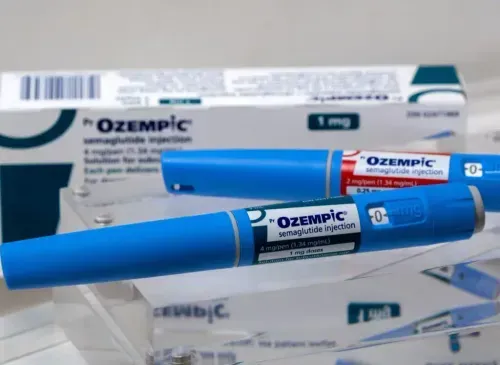Common Causes of Bicycle Accidents and Resulting Injuries
Bicycle accidents occur through various scenarios, each presenting unique liability and injury patterns:
- Dooring accidents – A parked car’s door opens into a cyclist’s path, causing collision and injury
- Right-of-way violations – Drivers fail to yield at intersections, causing T-bone or broadside collisions
- Rear-end collisions – Drivers strike cyclists from behind, often at high speeds
- Sideswipe incidents – Drivers pass too closely, clipping cyclists and forcing them off the road
- Bike lane incursions – Vehicles illegally enter bike lanes, striking cyclists in areas meant to be safe
Each accident type creates distinct injury patterns and liability questions. Our attorneys investigate thoroughly to determine exactly what caused your accident and who bears responsibility. If your accident resulted in a pedestrian accident or involved a vehicle, we apply the same rigorous investigation standards. We also handle hit and run accidents where the at-fault driver fled the scene.
Catastrophic Injuries and Death from Bicycle Accidents
Bicycle accidents frequently result in catastrophic injuries that change lives permanently. Without the protection of a vehicle’s frame and airbags, cyclists absorb the full force of impact. Catastrophic injury cases require experienced legal representation to maximize compensation for lifetime care needs.
Head and Brain Injuries
Traumatic brain injuries (TBI) represent serious bicycle accident injuries. Even helmeted cyclists suffer concussions, contusions, and diffuse axonal injuries. Severe TBI can cause permanent cognitive impairment, memory loss, personality changes, and loss of consciousness. Many cyclists never fully recover their pre-accident mental function. Traumatic brain injury cases require specialized legal representation to ensure full compensation for lifetime care needs. Our attorneys work with medical experts to document the full extent of brain injuries and their long-term impact on earning capacity and quality of life.
Spinal Cord Injuries
Impact to the spine can cause partial or complete paralysis. Paraplegic cyclists lose function in their legs, while quadriplegic cyclists lose use of all four limbs. These injuries require lifetime medical care, home modifications, and assistive devices. The financial and emotional toll extends far beyond the initial hospitalization. Spinal cord injury claims demand experienced attorneys who understand the long-term medical and financial implications. We calculate damages based on comprehensive life care plans that account for decades of specialized medical treatment.
Internal Organ Damage
Blunt force trauma can rupture organs, cause internal bleeding, or damage vital systems. Liver, kidney, and lung injuries may not be immediately apparent but can prove fatal without emergency intervention. Some internal injuries develop complications months or years after the accident. Our medical investigation team identifies hidden injuries that insurance adjusters often overlook.
Fatalities
Bicycle accident fatalities occur when injuries prove too severe to survive. Hundreds of cyclists die annually in traffic accidents. Families left behind face not only grief but also financial hardship and the loss of a loved one’s future earnings and companionship. Wrongful death claims provide a path to justice and compensation for surviving family members. We have recovered substantial settlements for families who lost loved ones in bicycle accidents.
Long-Term Disability
Survivors of catastrophic bicycle accidents often face permanent disability. Chronic pain, reduced mobility, cognitive impairment, and psychological trauma can prevent return to work or normal activities. Rehabilitation can take years and may never restore full function. Catastrophic injury representation ensures you receive compensation that reflects the lifetime impact of your injuries. We work with vocational rehabilitation experts to calculate lost earning capacity for permanently disabled cyclists.
When you suffer catastrophic injuries in a bicycle accident caused by another’s negligence, you deserve compensation that reflects the severity of your injuries and the lifetime impact on your quality of life.
What Compensation Can You Recover in a Bicycle Accident Claim?
Injured cyclists can pursue multiple categories of damages in personal injury claims:
- Medical expenses – Emergency care, hospitalization, surgery, rehabilitation, therapy, medications, and ongoing treatment
- Lost wages – Income lost during recovery and inability to work
- Lost earning capacity – Reduced ability to earn income in the future due to permanent disability
- Pain and suffering – Compensation for physical pain, emotional distress, and reduced quality of life
- Property damage – Replacement cost of your bicycle, helmet, gear, and personal items damaged in the accident
- Loss of consortium – Compensation to family members for loss of companionship and support
The value of your claim depends on the severity of your injuries, the clarity of liability, and the defendant’s insurance coverage. Our attorneys evaluate all available compensation sources and work to pursue maximum recovery for your case. We review pain and suffering valuations based on comparable cases to ensure fair compensation.
Steps to Take After a Bicycle Accident
Taking the right actions immediately after a bicycle accident protects your health and strengthens your legal claim:
Seek Medical Attention
Your health comes first. Call 911 if you or anyone else needs emergency care. Even if you feel fine, some injuries develop over hours or days. Visit an emergency room or urgent care facility for evaluation and documentation. Medical records create the foundation for your injury claim.
Document the Scene
If you can safely do so, photograph the accident scene from multiple angles. Capture vehicle damage, road conditions, traffic signals, bike lane markings, and any visible hazards. Take photos of your injuries and damaged bicycle. This evidence proves crucial in establishing liability and demonstrating the force of impact.
Gather Witness Information
Collect names, phone numbers, and email addresses from anyone who witnessed the accident. Witness statements often prove crucial in establishing liability. Independent witnesses carry significant weight with insurance companies and juries.
Report to Police
Call police to file an accident report. Provide accurate information about what happened. Request a copy of the police report for your records. The official police report creates an independent record of the accident circumstances.
Preserve Evidence
Keep your damaged bicycle and clothing as evidence. Do not repair or discard items until your attorney reviews them. Preserve medical records, receipts, and documentation of expenses. Physical evidence demonstrates the severity of the collision.
Contact an Attorney
Reach out to a bicycle accident law firm promptly. Early investigation preserves evidence and witness memories. An attorney protects your rights and handles communication with insurance companies. The sooner you contact legal counsel, the stronger your case becomes.
Fighting for Bicycle Accident Victims
Parker Waichman LLP has offices nationwide, making it easy to access top-tier legal help no matter where you are. Our personal injury lawyers are familiar with regional laws and courts, giving you a strategic advantage.
Ready to discuss your bike injury case? Contact our nearest office today for a free consultation. Call now (516) 466-6500 or schedule an appointment online for a free consultation.
Similar Accident Cases We Handle
Our injury lawyers provide focused legal help for the full range of accidents and injuries. Find the specific topic that matches your situation:
Ready to discuss your case? Call us to schedule your free consultation today: (516) 466-6500.
Frequently Asked Questions About Bicycle Accident Claims
Prioritize your safety and health. Move to a safe location if possible, call 911 if anyone needs emergency care, and seek medical evaluation. Document the scene with photos, gather witness information, and report the accident to police. Contact an attorney as soon as possible to protect your rights. The steps you take in the first hours after an accident significantly impact your case outcome.
The statute of limitations for personal injury claims varies by state but typically ranges from two to four years. However, evidence degrades and witnesses’ memories fade over time. Filing promptly strengthens your case. Contact an attorney immediately to ensure you meet all deadlines. In New York, you generally have three years to file a personal injury lawsuit, while Florida allows four years.
Many states follow comparative negligence rules, allowing recovery even if you bear partial responsibility. Your compensation may be reduced by your percentage of fault. Some states bar recovery if you are more than 50% at fault. An attorney evaluates your specific situation and applicable law. New York follows pure comparative negligence, meaning you can recover even if you are 99% at fault, though your recovery is reduced accordingly.
Settlement amounts vary dramatically based on injury severity, liability clarity, and available insurance coverage. Minor injuries might settle for thousands of dollars, while catastrophic injuries can result in six or seven-figure settlements. Our attorneys evaluate comparable cases and build a valuation based on your specific injuries and damages. We review Top 100 Verdicts to ensure our valuations reflect current market rates for serious injuries.
Most bicycle accident claims settle without trial through negotiation with insurance companies. However, if the insurer refuses fair compensation, we prepare your case for trial. Our attorneys have experience in both settlement negotiations and courtroom litigation, ensuring you receive fair treatment either way. Our litigation experience gives us credibility in settlement negotiations – insurance companies know we will take cases to trial when necessary.
Get Your Free Consultation Today
If you suffered injuries in a bicycle accident caused by another’s negligence, you deserve compensation. Parker Waichman LLP offers free consultations to evaluate your case and explain your legal options. We handle all case costs upfront and work on contingency, so you pay nothing unless we recover for you.
Our team stands ready to work for the compensation and justice you deserve. Contact Parker Waichman LLP today to schedule your free consultation. Call (516) 466-6500 or schedule online arrange a time that works for you. Don’t delay – reach out now to protect your rights and begin your path to recovery.












































